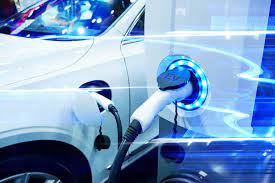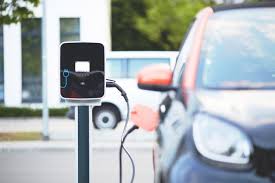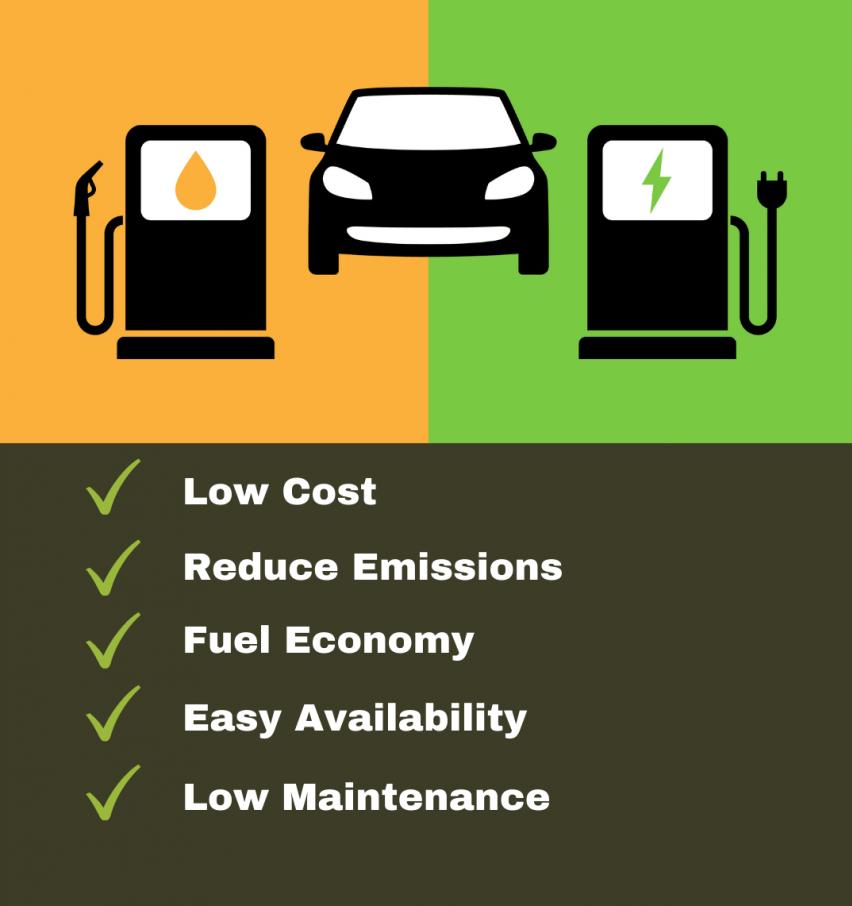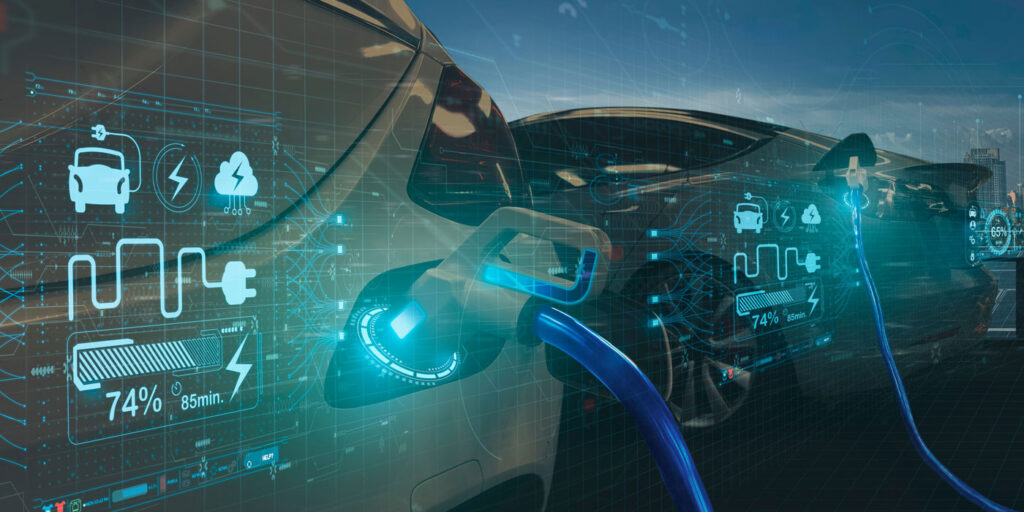Future of Electric Vehicles
The automotive industry has been undergoing a remarkable transformation in recent years, with electric vehicles (EVs) leading the way. As concerns about climate change and air pollution grow, the future of transportation is shifting towards cleaner, more sustainable alternatives. In this blog post, we will explore the exciting prospects of electric vehicles and their potential to revolutionize the way we travel, while also benefiting the environment.

Current State of Electric Car
The global adoption rate of EVs has experienced a notable and consistent upward trajectory. Thanks to continuous advancements in technology, E-vehicles are rapidly becoming more accessible and practical for everyday use. Major automakers have recognized the immense potential of electric vehicles and are making substantial investments in their production. This investment is not limited to a few models but extends to expanding their entire lineup to provide a diverse range of options to consumers.
Governments worldwide are also actively promoting the use of E-vehicles through various initiatives and incentives. They understand the urgent need to transition towards cleaner transportation options and are taking proactive measures to facilitate this shift. In addition to financial incentives such as tax credits and subsidies, governments are also investing in the development of robust charging infrastructure. The establishment of an extensive network of charging stations is essential to address concerns about range anxiety and provide EV owners with convenient access to charging facilities, both at home and on the road.
Collectively, these efforts from automakers and governments are accelerating the growth of the electric vehicle market and paving the way for a sustainable future. By making electric vehicles more accessible, practical, and supported by a reliable charging infrastructure, the stage is set for a significant shift in the transportation landscape.

Benefits of Electric Car
One of the most significant advantages of electric vehicles is their positive impact on the environment. Unlike conventional vehicles that rely on fossil fuels, EVs produce zero tailpipe emissions. By transitioning to electric car, we can significantly reduce greenhouse gas emissions and combat air pollution, leading to cleaner and healthier cities.
Moreover, EVs offer substantial energy efficiency and cost savings. EVs have fewer moving parts and require less maintenance than internal combustion engines, resulting in lower operational costs. Additionally, as the price of batteries continues to decline, the overall cost of E-vehicles is becoming more competitive with traditional vehicles. With savings on fuel and maintenance expenses, EVs can provide long-term economic benefits to their owners.
E-vehicles also present an opportunity for integrating renewable energy sources into the transportation sector. EVs can serve as mobile energy storage units, allowing excess energy generated from renewable sources, such as solar and wind, to be stored and utilized when needed. This integration paves the way for a more resilient and sustainable energy system.

Challenges and Solutions
Despite the growing popularity of electric vehicles, a few challenges need to be addressed. Range anxiety, the fear of running out of battery power during a journey, is a common concern among potential buyers. However, advancements in battery technology are extending the range of electric vehicles, alleviating this issue. Additionally, the development of a robust charging infrastructure is crucial to support widespread EV adoption. Governments and private companies are investing in expanding the charging network, ensuring convenient access to charging stations for EV owners.
Affordability and accessibility are also key factors in accelerating the transition to electric vehicles. To make EVs more accessible, various incentives and subsidies are being offered, such as tax credits and purchase incentives. Additionally, automakers are working towards developing more affordable electric vehicle models to cater to a broader range of consumers.

Future Trends and Innovations
The future of electric vehicles looks promising, with several exciting trends and innovations on the horizon. Battery technology is continuously evolving, leading to longer ranges and faster charging capabilities. This progress will help eliminate range anxiety and make electric vehicles more convenient for long-distance travel.
Furthermore, autonomous and connected technologies are being integrated into electric vehicles. Self-driving capabilities and advanced connectivity features will enhance safety, improve traffic flow, and optimize the overall driving experience. EVs will play a pivotal role in shaping the future of smart transportation and the development of smart cities.
The automotive industry is also witnessing an expansion of electric vehicle models. Initially, EVs were primarily associated with sedans and compact cars. However, automakers are now introducing electric SUVs, trucks, and even high-performance sports cars. This diversification of electric vehicle options will cater to different consumer preferences and lifestyles, further promoting their widespread adoption.

Impact on the Automotive Industry and Society
The widespread adoption of electric vehicles is reshaping not only the automotive industry but also society as a whole. The impact of electric vehicles extends beyond their environmental benefits and economic opportunities. It influences the way we perceive transportation, shapes urban planning, and enhances the overall quality of life.
First and foremost, the rise of EVs is disrupting the traditional automotive industry. Major automakers are redirecting their investments and research towards electric vehicle production and technology. This shift requires significant adjustments in manufacturing processes, supply chains, and workforce skills. The transformation presents challenges, but it also opens up new avenues for innovation and competitiveness within the industry.
The adoption of electric vehicles also contributes to job creation and economic growth. As the electric vehicle market expands, there is a growing demand for skilled professionals in areas such as battery technology, electric motor development, and charging infrastructure installation and maintenance. This demand creates employment opportunities and stimulates economic activity in various sectors associated with the electric vehicle ecosystem.
Furthermore, E-vehicles have a profound impact on urban planning and transportation systems. The integration of electric vehicles into smart city initiatives enables the development of sustainable transportation networks. Cities are reimagining their infrastructure to accommodate the charging needs of electric vehicles, promoting the installation of charging stations in public spaces, residential areas, and commercial hubs. This transformation not only supports the transition to cleaner transportation but also enhances the overall convenience and accessibility of electric vehicles for urban dwellers.
Electric vehicles also play a significant role in shaping our energy landscape. The integration of renewable energy sources with electric vehicles allows for more efficient utilization of sustainable energy. EVs can serve as energy storage units, storing excess energy generated from renewable sources during periods of low demand and releasing it back into the grid when needed. This integration promotes a more balanced and resilient energy system, reducing reliance on fossil fuels and enhancing energy security.
The future of electric vehicles holds great promise for a sustainable and cleaner transportation landscape. With advancements in technology, increasing affordability, and supportive government policies, electric vehicles are poised to revolutionize the automotive industry and positively impact society. Their environmental benefits, cost savings, and advancements in range and charging capabilities make them an attractive choice for consumers. The integration of autonomous and connected technologies further enhances the driving experience. By embracing EVs and investing in charging infrastructure, incentives, and research, we can accelerate the transition towards a greener and more sustainable future. Let us collectively drive towards a world where electric vehicles are the norm, and our planet benefits from reduced emissions and improved air quality.
